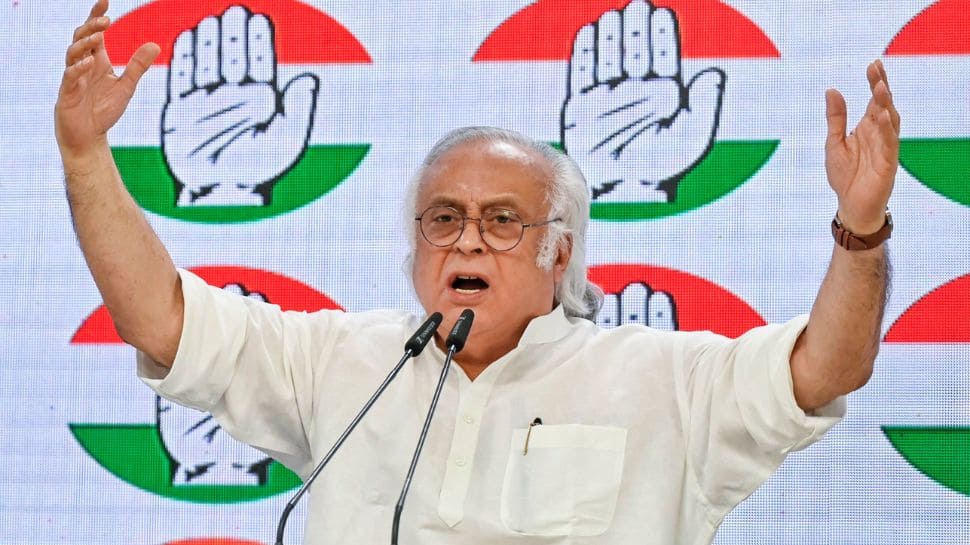Business
Jairam Ramesh Critiques New GST Regime as ‘Gabbar Singh Tax’

Congress Member of Parliament Jairam Ramesh has voiced strong criticism of the Indian government’s recent overhaul of the Goods and Services Tax (GST), describing the new regime as neither “good nor simple.” His remarks came as the revised GST structure is set to take effect on July 7, 2025, marking a significant change in the country’s tax system.
Ramesh referred back to the initial implementation of GST in July 2017, recalling that former Congress leader Rahul Gandhi labelled it the “Gabbar Singh Tax.” He emphasized the adverse effects of the tax, stating, “We knew it would come as a shock to our economy after demonetisation. They didn’t believe in us for eight years and brought about no changes.” This sentiment reflects a broader concern within the Congress party regarding the government’s fiscal policies and their impact on the economy.
The Congress MP highlighted that the GST rollout was a response to economic pressures, particularly following tariffs imposed by the United States. “When Donald Trump imposed tariffs, that is when the government was forced to improve the tax structure, and now they are celebrating it like a festival,” he noted, suggesting that the government’s actions were more reactive than proactive.
Ramesh also traced the origins of the GST proposal back to P Chidambaram, who first introduced it during the budget speech in 2006. He pointed out that between 2006 and 2014, only one Chief Minister opposed the GST, who later became Prime Minister and shifted his stance to support the reform by 2017. “In 2010, it was presented in Parliament as an act. For 2.5 years, it was there with the standing committee. When its report was presented, around the same time, the elections were announced,” he explained.
As the Government of India prepares for this major overhaul, the implications for businesses and consumers remain uncertain. Ramesh’s comments reflect a critical perspective on the efficacy of the GST system and the government’s handling of economic reforms.
The new GST regime has been hailed by some as a necessary step towards modernizing India’s tax structure, but for Ramesh and many in the opposition, it raises concerns about its real benefits and the government’s commitment to economic stability. The upcoming changes will undoubtedly shape the fiscal landscape in India, and their impact will be closely monitored by both supporters and critics alike.
-

 World5 months ago
World5 months agoSBI Announces QIP Floor Price at ₹811.05 Per Share
-

 Lifestyle5 months ago
Lifestyle5 months agoCept Unveils ₹3.1 Crore Urban Mobility Plan for Sustainable Growth
-

 Science4 months ago
Science4 months agoNew Blood Group Discovered in South Indian Woman at Rotary Centre
-

 World5 months ago
World5 months agoTorrential Rains Cause Flash Flooding in New York and New Jersey
-

 Top Stories5 months ago
Top Stories5 months agoKonkani Cultural Organisation to Host Pearl Jubilee in Abu Dhabi
-

 Sports4 months ago
Sports4 months agoBroad Advocates for Bowling Change Ahead of Final Test Against India
-

 Science5 months ago
Science5 months agoNothing Headphone 1 Review: A Bold Contender in Audio Design
-

 Top Stories5 months ago
Top Stories5 months agoAir India Crash Investigation Highlights Boeing Fuel Switch Concerns
-

 Business5 months ago
Business5 months agoIndian Stock Market Rebounds: Sensex and Nifty Rise After Four-Day Decline
-

 Sports4 months ago
Sports4 months agoCristian Totti Retires at 19: Pressure of Fame Takes Toll
-

 Politics5 months ago
Politics5 months agoAbandoned Doberman Finds New Home After Journey to Prague
-

 Top Stories5 months ago
Top Stories5 months agoPatna Bank Manager Abhishek Varun Found Dead in Well









